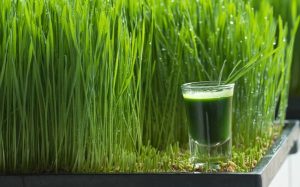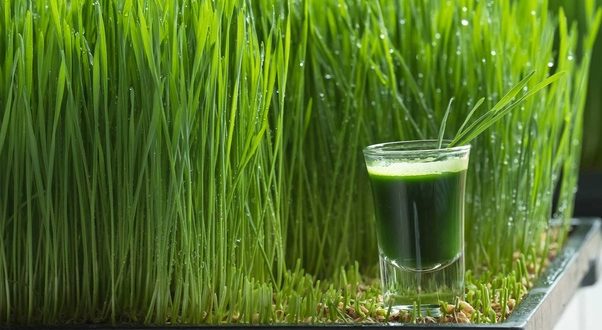Wheatgrass is considered a superfood due to its rich nutrient profile and potential health benefits. Here are the key benefits in detail:
1. Nutrient Density
Wheatgrass is packed with essential vitamins and minerals:
Vitamins: It contains high levels of vitamins A, C, E, and K, which are important for immune function, skin health, and bone health.
Minerals: Rich in iron, calcium, magnesium, and selenium, which support various bodily functions, including bone health and oxygen transport.
2. Detoxification
Wheatgrass may aid in detoxifying the body by:
Supporting liver function, helping to remove toxins.
Its chlorophyll content is believed to enhance the detoxification process.
3. Immune System Support
The antioxidants and vitamins in wheatgrass can:
Strengthen the immune response, making the body more resilient to infections.
Protect against oxidative stress, which can weaken the immune system.
4. Digestive Health
Wheatgrass supports digestive health by:
Providing enzymes that aid in breaking down food and absorbing nutrients.
Its fiber content can help promote regular bowel movements and alleviate constipation.
5. Energy Boost
Many users report increased energy levels due to:
The presence of essential nutrients that support metabolism.
Its ability to improve oxygen supply to the body, which may enhance stamina.
6. Anti-Inflammatory Properties
Wheatgrass may help reduce inflammation, benefiting:
Conditions such as arthritis or chronic inflammation due to its antioxidants, which can mitigate inflammatory responses in the body.
7. Skin Health
Wheatgrass contributes to healthier skin by:
Providing antioxidants that protect against skin damage from free radicals.
Its vitamins may help improve skin conditions like acne, eczema, and psoriasis.
8. Weight Management
Wheatgrass can be beneficial for weight loss:
It’s low in calories but high in nutrients, making it filling without contributing to excessive caloric intake.
Its ability to stabilize blood sugar levels can help control cravings.
9. Improved Blood Sugar Control
Some studies suggest that wheatgrass may help:
Lower blood sugar levels and improve insulin sensitivity, which can be beneficial for those with diabetes.
10. Potential Cancer-Fighting Properties
Preliminary research indicates that:
The antioxidants in wheatgrass may help combat cancer cell growth, though more research is needed in this area.

Conclusion
Incorporating wheatgrass into your diet can offer various health benefits, but it’s important to consult with a healthcare provider, especially if you have underlying health conditions or are taking medications.
 Gistfox Your News Window To The World
Gistfox Your News Window To The World 




